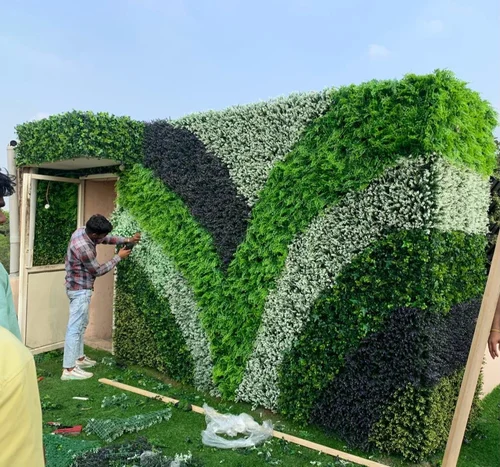
Artificial grass has become a popular alternative to natural grass in recent years, particularly in areas with high traffic or harsh weather conditions. However, as the use of artificial grass increases, there is a growing concern about the environmental impact of this synthetic material. One of the key questions being asked is whether artificial grass can be recycled.
The answer to this question is not a simple yes or no. While it is technically possible to recycle artificial grass, the process is not straightforward, and there are several factors to consider.
Firstly, it’s important to note that artificial grass is made from a variety of materials, including plastics, rubber, and sand. These materials are mixed together and bonded to create the turf, which makes it difficult to separate and recycle them.
Secondly, the recycling process for artificial grass is not well developed. Unlike natural grass, which can be composted and turned into nutrient-rich soil, artificial grass is not biodegradable and cannot be easily recycled. There are some companies that specialize in recycling artificial grass, but the process is often expensive and time-consuming.
Thirdly, even if artificial grass can be recycled, the recycled materials may not be suitable for use in new products. For example, the plastic and rubber materials used in artificial grass may be contaminated with chemicals and heavy metals, which could make them unsafe for use in other applications.
Given these challenges, it’s clear that recycling artificial grass is not a simple solution to the environmental concerns surrounding this material. However, there are some steps that can be taken to reduce the environmental impact of artificial grass.
One approach is to choose artificial grass that is made from sustainable materials and is designed to be recyclable. Some manufacturers are now producing artificial grass that is made from recycled plastics and rubber, which can reduce the environmental impact of the material.
Another approach is to extend the life of artificial grass by proper maintenance and repair. By regularly cleaning and maintaining artificial grass, it’s possible to extend its lifespan and reduce the need for frequent replacements.
Finally, it’s important to consider the end-of-life disposal options for artificial grass. While it may not be possible to recycle artificial grass in all cases, it’s important to ensure that it is disposed of in a responsible manner that minimizes its environmental impact.
In conclusion, while it is technically possible to recycle artificial grass, the process is not straightforward, and there are several factors to consider. However, by choosing sustainable materials, maintaining artificial grass properly, and considering end-of-life disposal options, it’s possible to reduce the environmental impact of this synthetic material.










